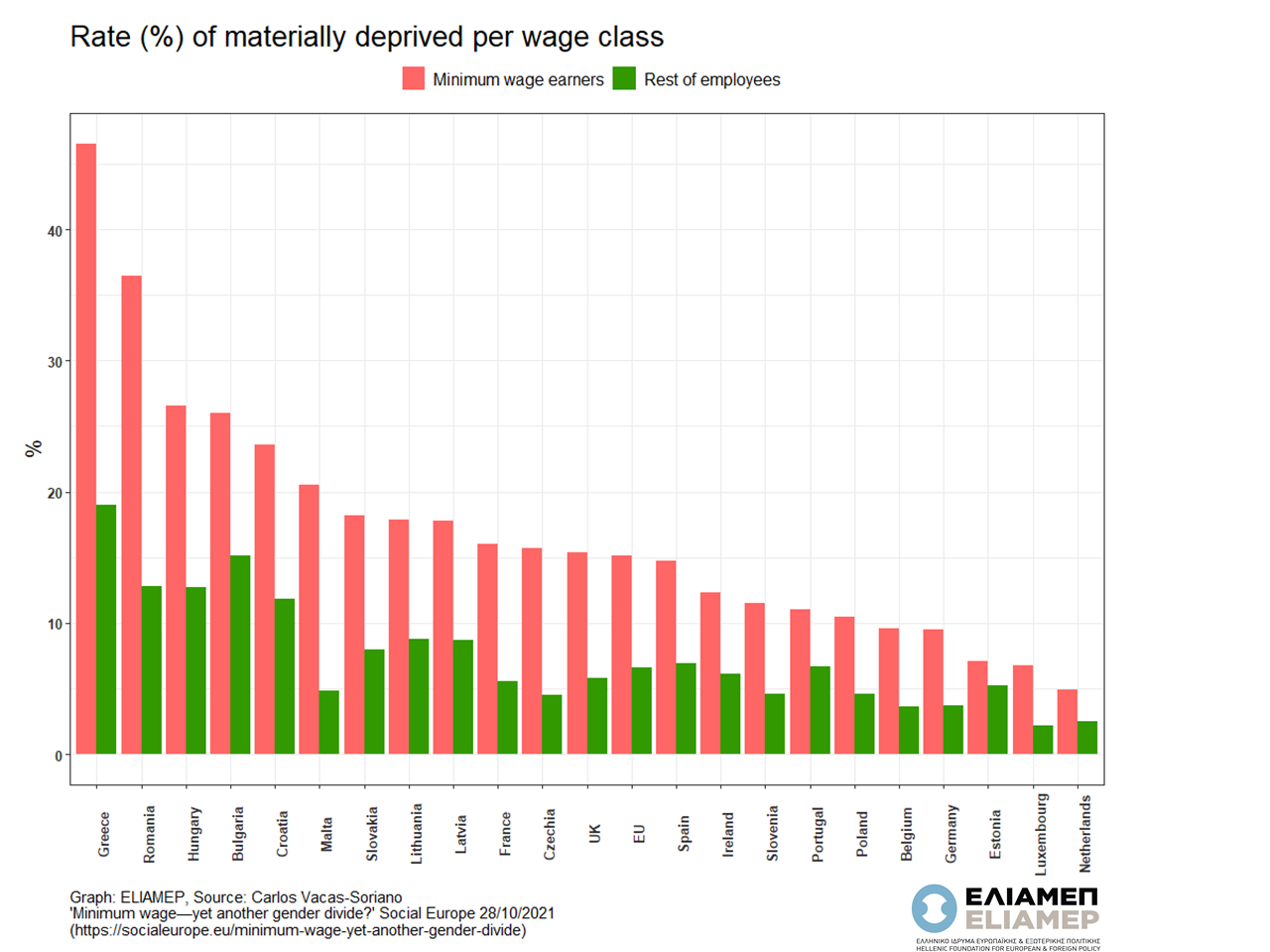One of the weakest arguments in favour of an increase to the minimum wage (or in favour of its introduction, if one does not exist already) is that this would be effective in reducing poverty. It is no necessarily so. On the one hand, many poor individuals are not in work: they are underage children, jobless workers, informal carers, disabled, retired. Or, if they are in work, they are not dependent workers: they work as freelancers, or other self-employed. None of these categories will be affected by a change to the minimum wage (not directly, at least). On the other hand, not all low earners are poor. Poverty is determined at household, not individual, level – and it depends on total incomes, not just wages. A minimum wage earner will be non-poor, if e.g. she is the daughter of a well-off family living with her parents, working occasionally to supplement her pocket money.
For all of the above reasons, the question of the effects of a change to the minimum wage on poverty cannot be answered a priori. It depends on who are the poor at a specific moment in a specific country.
A recent study by Carlos Vacas-Soriano (Eurofound) provides an answer to this question by analysing the available evidence on the joint distribution of (individual) earnings and (household) incomes. As shown in the graph, the share of minimum wage earners who live in poverty varies enormously across the EU. At one end are countries like the Netherlands, where fewer than 5% of all minimum wage earners live in poor households. At the other end are countries like Greece, where as many as 47% of minimum wage earners are poor. The average for the EU as a whole is 15%.
Does this imply that raising the minimum wage will always cause a reduction in poverty? Not necessarily. An excessive increase might induce employers to cut down on the number of employees, or even to close down their business.
The question is beyond which point does an increase become excessive. The historical record shows that the negative effects of the minimum wage on employment are often overstated. In Germany, where employer federations mobilised against the introduction of the minimum wage, predicting the loss of 750,000 jobs, employment continued to expand after a statutory minimum wage at €8,50 hourly was introduced in January 2015. A recent study by Christian Dustmann (University College London) and his coauthors showed that German firms adjusted to the introduction of the minimum wage by raising their game: the higher wage constraint led to more investment to raise productivity, and some consolidation (average firm size increased too). Results were robust: following the introduction of the minimum wage in January 2015, employment increased across all sectors and regions, including those most affected (e.g. hotel and catering, and East Germany, respectively).
What are the policy implications for Greece, where average wages remain 20% below their level of over a decade ago? That an increase to the statutory minimum wage will contribute to poverty reduction, as well as to the upgrade of Greece’s growth model. Provided the minimum wage is raised gradually, and prudently.




